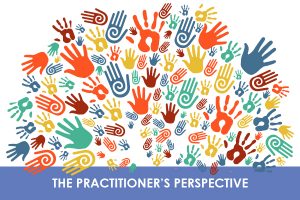Exploring Equity Issues - Blog

Whatever It Takes & By Any Means Necessary: Ensuring Equitable Access to Unequal Systems
By Brandon Wallace
Director of Training and Strategic Initiatives, BridgeEdU
 My entire career has been riddled by this one question: how do I get more of my students to access more education and ultimately attend college? As an African-American man, I learned at an early age that education (along with exposure) was a viable pathway to escape the grips of inner city projects and poverty—a grasp that is often unyielding and generationally handicapping. After an entire year of plotting, I came up with a dynamic plan, which has been augmenting, changing, and growing since its inception and implementation.
My entire career has been riddled by this one question: how do I get more of my students to access more education and ultimately attend college? As an African-American man, I learned at an early age that education (along with exposure) was a viable pathway to escape the grips of inner city projects and poverty—a grasp that is often unyielding and generationally handicapping. After an entire year of plotting, I came up with a dynamic plan, which has been augmenting, changing, and growing since its inception and implementation.
Under the guise of a handsomely-dressed English teacher, I dubiously applied a hidden curriculum to enhance my students’ college access experiences. That’s right! Every assignment I could think of linked it right back to college—statement of purpose/ intent expositions, college-level, adapted texts, FAFSA primary text decoding sessions with upperclassmen, it was all there. One example of this stealthily accomplished goal was reading prose and poetry and insisting that after our normal close reading and explications, respectfully, we would write from the perspective of the author/ speaker to apply for college.
The purpose setting statement would sound something like this: Now that you have read Paul Laurence Dunbar’s poem “We Wear the Mask”, imagine that you are Dunbar applying for admission into your dream school. Using only one page, explain to the Director of Admissions (research her/ his name) of why you, as Dunbar, would be a viable applicant. While writing your statement, ensure that you utilize one of the themes presented in the poem, embed Dunbar’s rich, elevated diction throughout the poem, and succinctly write as much as you can—keeping in mind the one-page limitation.
I single-handedly orchestrated what my students needed in tandem with what my school system required—eliminating the excuses of either/ or, e.g., either I can get my students more college ready or I can teach what the school wants me to teach. For our students, who have so many ultimatums that present compounded problems no matter which option they choose, I knew it was my job to conjoin and improve what students needed and what the systems required. I seemingly inherited a relentless pursuit of increasing access to education and information through whatever means necessary—a proud, rich tradition passed down by our ancestors like Thomas H. Jones, Frederick Douglass, and so many other enslaved Black men who had to figure out a way to gain access to education without systemic assistance. These celebrated figures did not wait for the social systems to give them equitable access; they were so impassioned to access and gain literacy that they did what they had to do.
Nowadays, I don’t have to sneakily build supports to increase equitable access into college and university; I passionately perform those duties every day at BridgeEdU. As the Director of Training and Strategic Initiatives, it’s my job now to live out my dream, which is best represented through our CEO, Wes Moore’s ideal: to empower our scholars to realize their potential, to overcome their challenges, and to achieve their dreams.
At BridgeEdU, we offer a comprehensive success coaching model and treatment to first-generation college students that combines virtual platforms and face-to-face engagement facets to improve college completion. We use data to improve and support the outcomes of the students we serve. We connect our program participants to internship opportunities and work relentlessly to make them a part of their school’s community.
We are dedicated to our ultimate mission, yet we know that, regardless of our passions, there is still immediate, actionable work to accomplish. I do become slightly undone when I consider that White Americans were 49 percent of first-generation college students but 70 percent of the college students who had at least one parent who had enrolled in college, Blacks were 14 percent of all first-generation students but 11 percent of continuing generation students, and Hispanics were 27 percent of all first-generation students but only 9 percent of continuing generation students (Redford & Hoyer, 2017). But even with that in mind: Education is still a human right, and the United States of America, regardless of who is politically in power, is a signatory to providing its citizens, regardless of unique identifiers, this basic human right (The United Nations, 1948, art. 21.3). We must always be in position to pursue our passion as educators and defend the rights of others through whatever means it takes. We owe it to ourselves; we owe it to our ancestors; we owe it to the generations of students that are to come.
References:
Redford, J., & Hoyer, K.M. (2017). First-Generation and Continuing-Generation College Students: A Comparison of High School and Postsecondary Experiences. Stats in Brief—U.S. Department of Education. Retrieved from https://nces.ed.gov/pubs2018/2018009.pdf.
Institute of Education Sciences-National Center for Education Statistics (2017). Integrated Postsecondary Education Data Systems (IPEDS). Retrieved from https://nces.ed.gov/ipeds/
The United Nations. (1948). Universal Declaration of Human Rights.
The Center for Education Equity (CEE) at MAEC is inviting members of our advisory board, partners, and other colleagues to share their views on current equity issues. Their opinions do not necessarily reflect CEE’s views or those of the Department of Education and we do not necessarily endorse any products or resources they promote.
